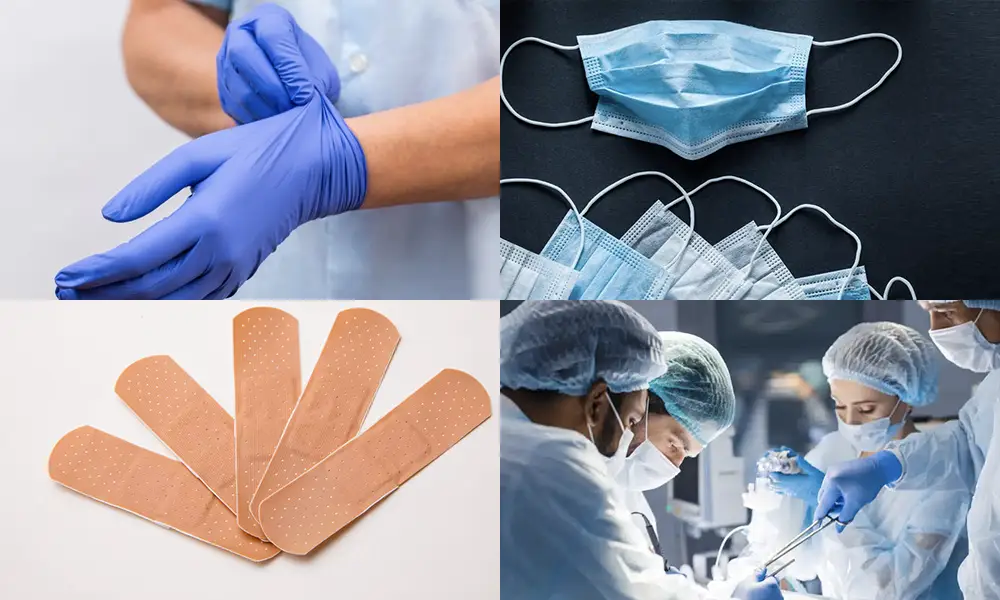
Medical Grade Rotary Die
In medical device manufacturing, precision isn’t optional—it’s essential. From diagnostic strips to wound care patches, the components created must meet exact specifications. At the heart of this process lies the medical-grade rotary die—a tool that shapes, cuts, and defines critical features of medical products. But why does precision matter so much in this domain?
Let’s explore the reasons why accuracy, consistency, and fine tolerances are non-negotiable in rotary die tooling for medical applications.
High Stakes in Every Cut
Medical products often interact directly with the human body. Whether it’s a bandage adhering to skin or a biosensor tracking vital signs, these devices must perform flawlessly. A single flawed cut or misaligned layer can cause:
- Improper adhesion or discomfort
- Device malfunction or inaccurate readings
- Reduced sterility or contamination risk
- Regulatory non-compliance and failed quality audits
Unlike consumer goods, medical products cannot tolerate variations. Precision cutting ensures the safety, effectiveness, and reliability of every unit produced.
Tight Tolerances = Consistent Results
Medical-grade rotary dies must meet tight tolerance levels—often within ±10 microns. Why? Because even the smallest deviation can change how a device functions. Consider these examples:
- In wound care, a die that cuts too deeply could damage the absorbent layer.
- In diagnostic tests, incorrect alignment may interfere with the flow of samples.
- In wearables, inconsistent adhesive areas can impact both function and comfort.
Maintaining such tight control over dimensions ensures that every item leaving the production line is functionally identical—and that’s vital in healthcare.
Multi-Layer and Sensitive Materials
Medical components are often multi-layered, combining adhesives, films, foams, and absorptive layers. These materials may be soft, stretchable, or highly sensitive to pressure and heat. Rotary dies must therefore:
- Cut without tearing or fraying
- Avoid heat buildup that affects material integrity
- Align multiple layers with perfect registration
- Leave smooth, debris-free edges
Only a highly precise rotary die can handle these challenges effectively.
High-Speed Manufacturing Demands Repeatability
Modern medical production lines often run at high speeds. A die that performs perfectly once but fails after 10,000 cycles is not viable. Precision in die manufacturing ensures:
- Long-term repeatability
- Minimal downtime
- Reduced waste and production errors
- Fewer quality control rejections
With the pressure to produce large volumes efficiently, repeatable accuracy becomes just as important as initial precision.
Regulatory Pressure and Industry Standards
The medical industry is tightly regulated. Standards such as ISO 13485 and requirements from the FDA or CE authorities demand product consistency, traceability, and safety.
Precision die cutting plays a direct role in meeting these standards. Poorly manufactured components may lead to:
- Failed inspections
- Regulatory recalls
- Reputational damage
- Legal and financial penalties
Precision protects compliance—and compliance protects lives.
Precision is the Pulse of Progress
As medical technology advances, the complexity of devices continues to grow. From smart patches to microfluidic test kits, every component must be shaped with pinpoint accuracy. Medical rotary dies are no longer just cutting tools—they are key enablers of medical innovation.
Sakazaki designs and manufactures custom rotary dies for the medical device industry with a focus on tight tolerances, repeatable accuracy, and regulatory compliance. Their dies support the production of adhesive bandages, biosensors, diagnostic components, and more—ensuring manufacturers can deliver safe, precise, and high-quality medical products every time.
Do you need ultra-precise rotary dies for your medical production line? Connect with Sakazaki for custom-engineered solutions built for medical performance.